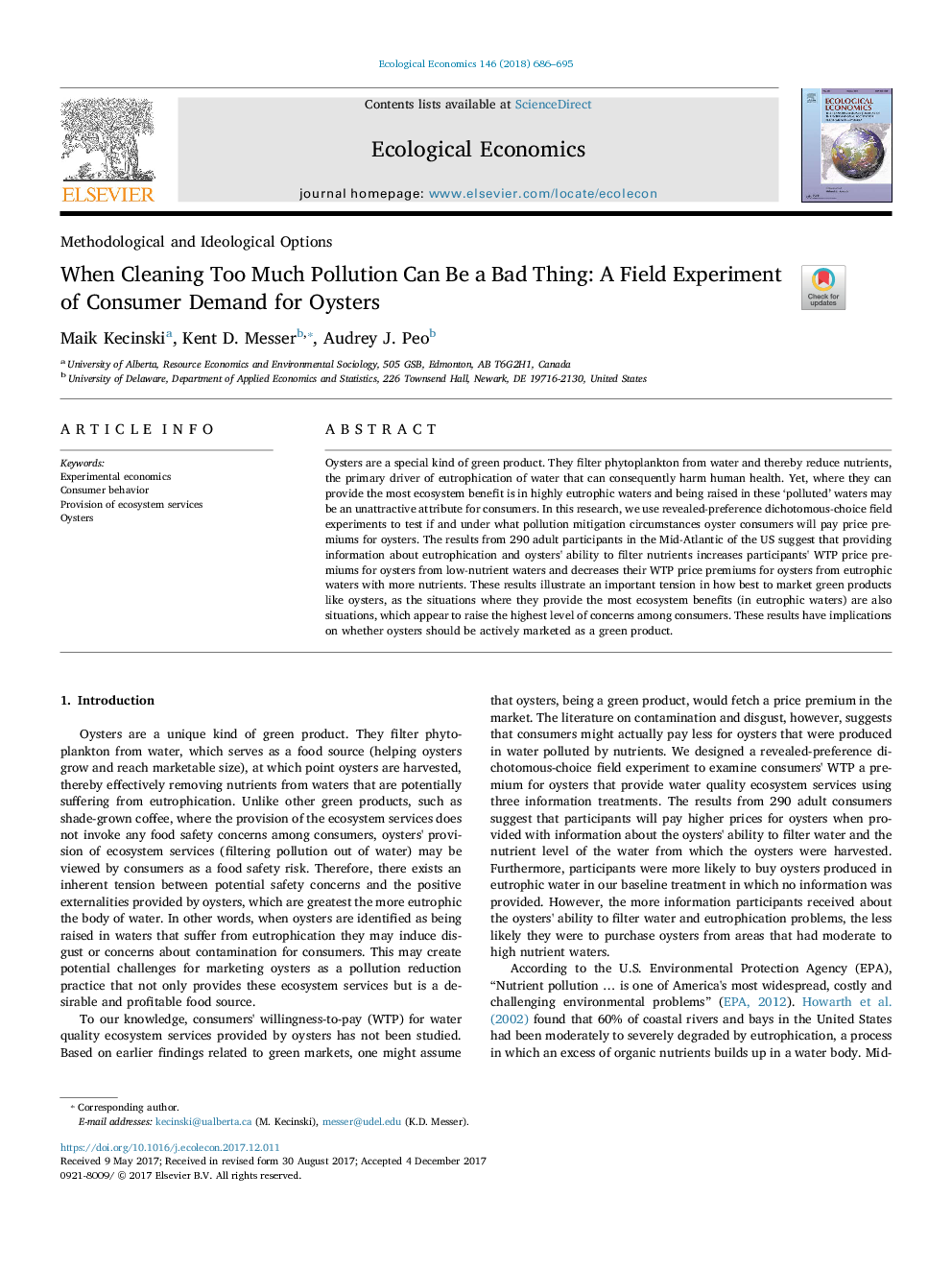ترجمه فارسی عنوان مقاله
هنگامی که تمیز کردن بیش از حد آلودگی می تواند یک چیز بد باشد: یک آزمایش درست از تقاضای مصرف کنندگان برای صدف
عنوان انگلیسی
When Cleaning Too Much Pollution Can Be a Bad Thing: A Field Experiment of Consumer Demand for Oysters
| کد مقاله | سال انتشار | تعداد صفحات مقاله انگلیسی |
|---|---|---|
| 91356 | 2018 | 10 صفحه PDF |
منبع

Publisher : Elsevier - Science Direct (الزویر - ساینس دایرکت)
Journal : Ecological Economics, Volume 146, April 2018, Pages 686-695
ترجمه کلمات کلیدی
اقتصاد تجربی، رفتار مصرف کننده، ارائه خدمات اکوسیستم، صدف،
کلمات کلیدی انگلیسی
Experimental economics; Consumer behavior; Provision of ecosystem services; Oysters;

